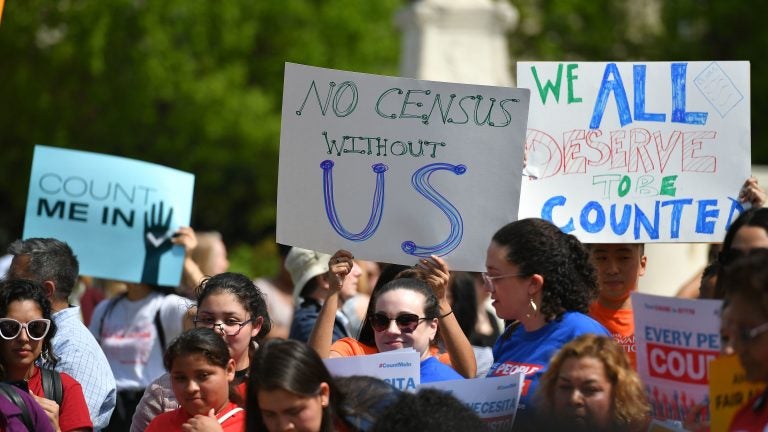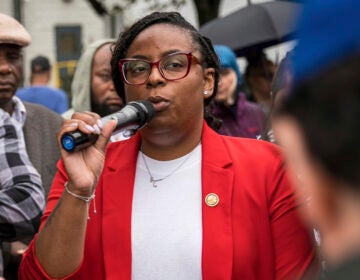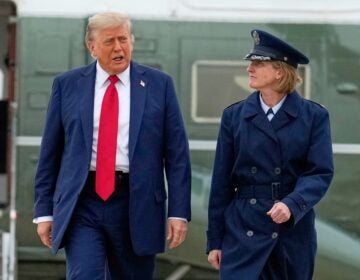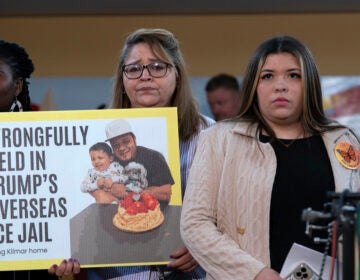Blocked citizenship question not likely to lower census response, test finds

Demonstrators rally in Washington, D.C., in April to protest the Trump administration's efforts to add to 2020 census forms a citizenship question, which has since been blocked by the courts. (Mandel Ngan/AFP/Getty Images)
If the Trump administration had been allowed to add the now-blocked citizenship question to the 2020 census, it likely would not have had a significant effect on self-response rates, the Census Bureau said Thursday.
The finding is from preliminary results of a national experiment the Census Bureau scrambled to put together earlier this year in response to the administration’s push for the question.
It’s not clear when the bureau plans to release a final report on the experiment.
The bureau randomly selected approximately 480,000 households across the country, except in remote Alaska and Puerto Rico, to take part in what it has called the “2019 Census Test.” Half of those households were asked to complete test forms with the question, “Is this person a citizen of the United States?”
The early findings come more than a year and a half after the Trump administration announced a decision in 2018 to add the hotly contested question. This summer, three federal courts permanently blocked the question from being added — in part because the bureau had not conducted required testing of public reaction to including a citizenship question on 2020 census forms.
The nine-week test took place in the midst of a heated legal battle over the question. By early July, it sparked confusion around the country about why the bureau was continuing to use census forms to ask about people’s U.S. citizenship status after a majority of the U.S. Supreme Court ruled to keep the question off.
The bureau has said the test results could be “valuable” to any officials considering adding such a question to future census forms.
After backing down from efforts to use the 2020 census to ask about citizenship status, the Trump administration is now moving forward with compiling government records to produce detailed citizenship data.
In an executive order released in July, President Trump said that he wants the data to be available for state redistricting officials to use when redrawing voting districts after the national head count. A prominent GOP redistricting strategist, Thomas Hofeller, has concluded that this kind of citizenship data could give Republicans and non-Hispanic white people a political advantage.
In his executive order, Trump also left open the possibility of a resurrected political fight over a census citizenship question. The president directed the commerce secretary, who oversees the Census Bureau, to “consider initiating any administrative process necessary to include a citizenship question on the 2030 decennial census.”
9(MDAzMzI1ODY3MDEyMzkzOTE3NjIxNDg3MQ001))




